Village Life’s 5 Whoas & 5 Woes
It’s our last night here on Ambrym, a small volcanic island within the archipelago of Vanuatu. We have made so many friends here, and within just one week, we feel a part of this 200-person village of Port Vatu. John Tasso and his wife Sessie have been incredible hosts, and before we leave, we jotted down our five whoas and woes from the last seven days:
Whoas
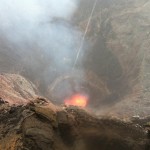 1. We trekked 11 hours through a hilly jungle and ash plain to reach on the world’s most-active volcanos. We were lucky enough to get a clear view of one of this Earth’s craziest natural phenomenons.
1. We trekked 11 hours through a hilly jungle and ash plain to reach on the world’s most-active volcanos. We were lucky enough to get a clear view of one of this Earth’s craziest natural phenomenons.
2. The black sand beach here in Ambrym is one of the most unique beaches in the world. The black sand is coarser than regular sand, and we actually left the beach each time with cleaner feet than we started with. It was like a free pedicure exfoliation each time we swam. The beach is also guarded by coral, and there are barely any waves that go higher than a few feet. Surfing is impossible, but it causes the ocean to feel more like a giant swimming pool or bathtub, and we’ve started nearly every day with an ocean bath. 
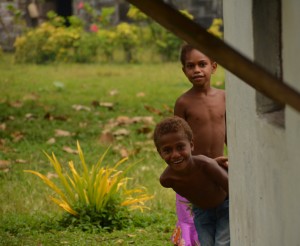 3. The kids of this village are an absolute riot. It is easy to make them laugh, and the similarities in their language allows a small mutual communication ability. This week we’ve swam with the kids, taught them how to throw a frisbee, showed them some magic tricks, and just laughed with them. These kids don’t have much. They wear clothes that kids in America have long thrown away, they have no fancy toys, no shoes, no TV, no iPad, no cake, candy or ice cream, and yet they are some of the happiest kids we’ve ever seen. Without knowing it, they have taught us a lesson about what creates happiness. It’s not buying more “things”.
3. The kids of this village are an absolute riot. It is easy to make them laugh, and the similarities in their language allows a small mutual communication ability. This week we’ve swam with the kids, taught them how to throw a frisbee, showed them some magic tricks, and just laughed with them. These kids don’t have much. They wear clothes that kids in America have long thrown away, they have no fancy toys, no shoes, no TV, no iPad, no cake, candy or ice cream, and yet they are some of the happiest kids we’ve ever seen. Without knowing it, they have taught us a lesson about what creates happiness. It’s not buying more “things”.
4. Port Vatu is a Protestant village, and we decided to attend church with them on Sunday. I was amazed at the home-made dresses that all the women and young girls were wearing, and even many of the men broke out shirts and ties. Their love of God is evident everywhere… From the way they treat each other to the way they treat visitors like us. I remember clearly the first night’s dinner here. We were sitting outside on the ground with John’s family. Each plate was served a perfect amount so that none was wasted. All the food had been walked here by John from the family garden (a three hour round trip). I sat in awe and watched the family pray together and give thanks to God before eating a meal that many Americans would not touch. Knowing how hard it is for these families to feed their children, and seeing them give thanks for it, is a hard lesson in taking our easy lives for granted (there are no drive-thrus here for when mom or dad had a long day and don’t want to cook)
5. One thing we have loved about staying here was to know we were truly living off the land. We weren’t necessarily preparing it ourselves, but nearly everything we ate or drank came from this island. We picked fruit of the trees nearby, ate from the family garden, tried some local deserts, and drank the rainwater. We joked about how when the rest of the world runs out of oil and starts falling apart, that it will be places like this that are able to continue living just fine. 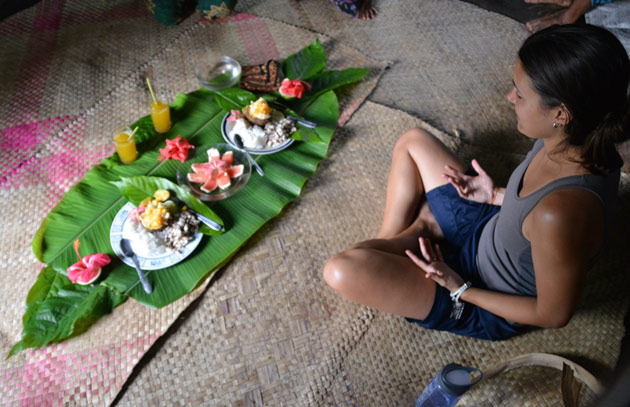
Woes
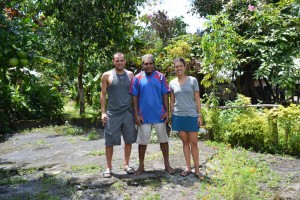 1. We are sad to be leaving the friends we have made here, especially our host family, John Tasso, his wife Sessie, and their kids. This island is not a quick trip from the United States, and unlike other destinations we’ve visited, we know there is a very slim chance we ever make it back here. Saying goodbye to the family feels like a permanent goodbye, making it harder to do.
1. We are sad to be leaving the friends we have made here, especially our host family, John Tasso, his wife Sessie, and their kids. This island is not a quick trip from the United States, and unlike other destinations we’ve visited, we know there is a very slim chance we ever make it back here. Saying goodbye to the family feels like a permanent goodbye, making it harder to do. 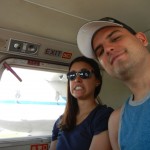
2. I’m writing this post during an airplane ride in a one-pilot, ten-seater plane that is not comfortable, and scares both of us. It’s great that there are two engines, but why only one pilot? I think we’ve both agreed to try and avoid plane rides like these in the future.
3. The bugs, specifically the flies, will be something we won’t miss at all. There is no escape from the flies on an island like this, and everything attracts them. The islanders are used to them, but after a week, we still struggled with the constant swatting of flies. It’s not a reason to not come to Ambrym, but it’s definitely something to be aware of before coming. At night we do get relief inside our mosquito nets, and are able to sleep in peace from the buzzing and swatting. (The night isn’t all peace and quiet. We are awakened many times by the sound of large mice in the walls, chickens getting into our house, roosters crowing, and dogs barking. Somehow by night six, it all seems a bit peaceful.) 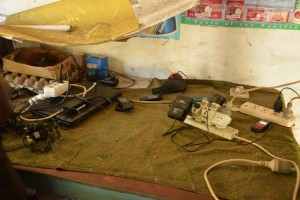
4. Not having Internet for a week was tough for both of us. Not having Internet on our phones while traveling has already helped us cure our “over-connected” work-life problems, but neither of us were prepared or wanted to lose touch completely. It is hard on both us, as well as our families, to not be able to communicate regularly. We will most-likely avoid any Internet-less destinations for longer than a weekend for the remainder of this trip.
5. We both greatly miss fresh tasting, cold water. The only fresh water source on the island is rainwater. Although our UV Camelbak bottle cleans the rainwater, it definitely does not help the taste. Each bucket of water we receive starts out tasting OK, but as we get towards the bottom, simple sips of water, or brushing out teeth are now joined by moments of goosebumps as we force the awkward tasting water down. Our first stop in Port Vila will be at a restaurant for some cold beer. It has been a week since we have drank anything that wasn’t warmer than room temperature.

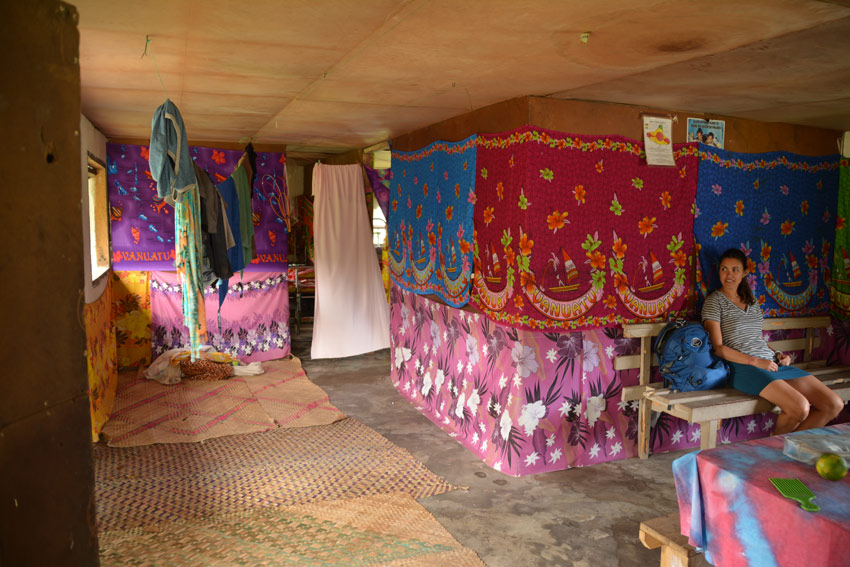

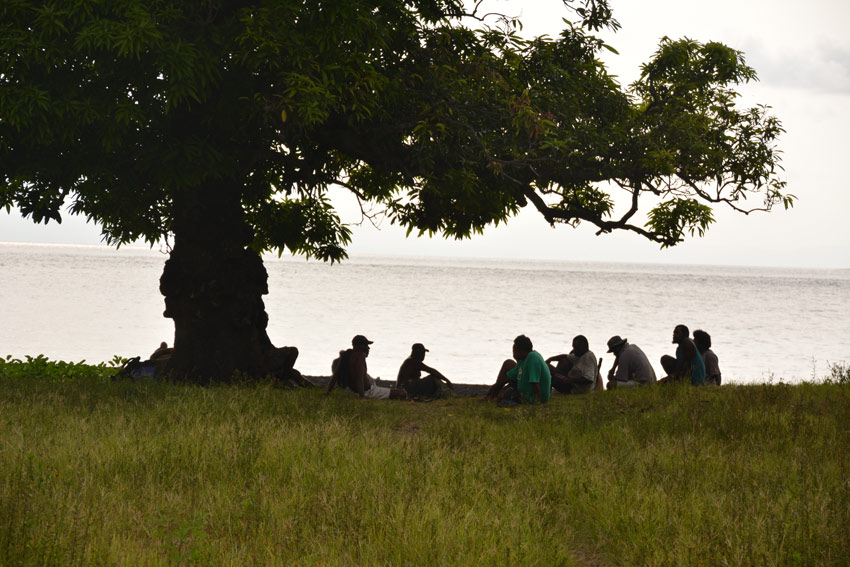

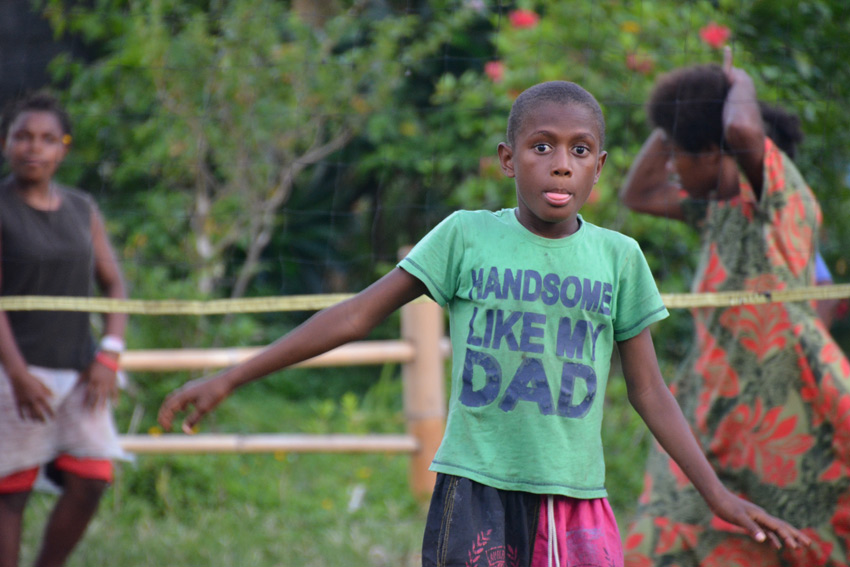

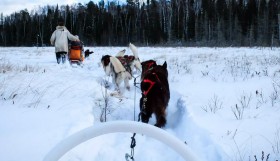
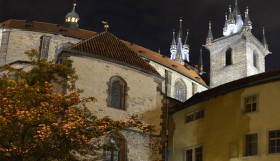
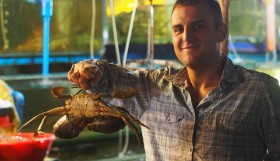
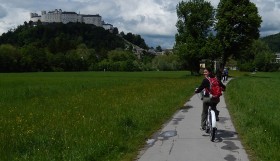















Pingback: This World Rocks Looking Back on One Year of Travel and Future Plans | This World Rocks